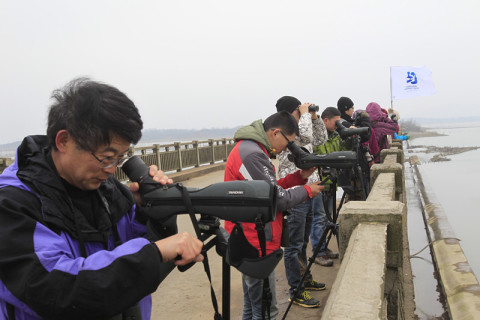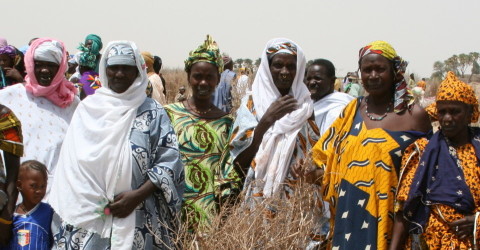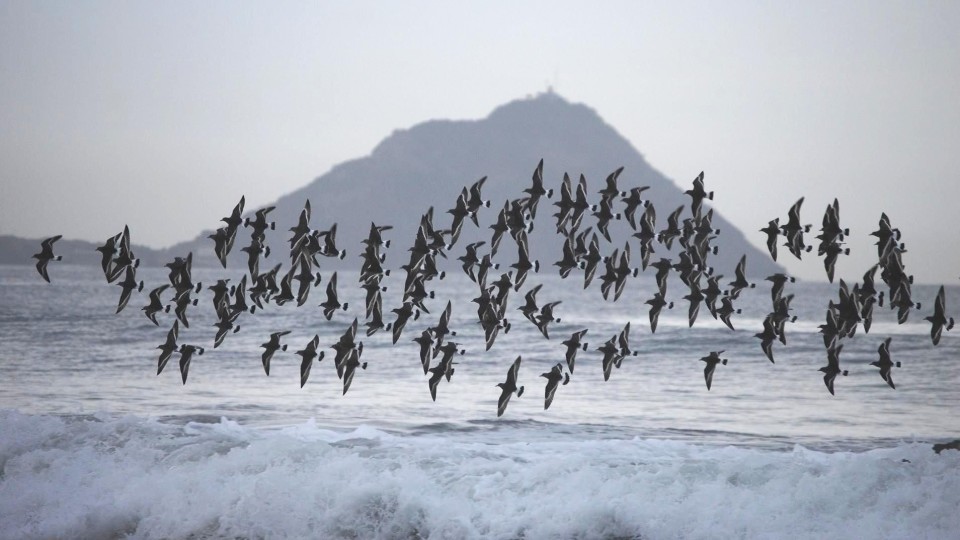This Tuesday 10th of May is World Migratory Bird Day (WMBD) is a massive, global celebration of the beauty and wonder of our avian friends who, every year, circumnavigate the globe to find the best conditions and habitats for feeding, breeding and raising their young. It is a natural miracle which has fascinated humankind for hundreds of years.
While World Migratory Bird Day is a celebration of this great natural feat, it also has an important purpose. This year, WMBD is working to highlight some of the threats facing migratory birds around the planet from illegal harvest and trade and, most importantly, what we can all do to keep populations healthy and thriving.
Migratory birds face many challenges and pressures during their annual migrations. Unfortunately many of these pressures come from humans, whether directly, from illegal killing, poisoning, strikes into power lines, windmills and other human constructions or indirectly through degradation and loss to their habitats.
A recent study by BirdLife International estimates that in the Mediterranean region alone, the number of birds illegally killed runs into the millions. Loss and degradation of wetland habitats has led to declining productivity of some waterbird populations and consequently less resilience to human persecution. Even some highly abundant species are showing declines, and others have been pushed to the edge of extinction. Monitoring data, including that collected by the Wetlands International coordinated International Waterbird Census, has tracked these recent declines, yet appropriate action to halt or reverse some of these declines has not always been put in place.

Spotters count migratory birds at Shengjin Lake in China for the International Waterbird Census’ 50th year
To tackle illegal killing, taking and trade of migratory birds, Wetlands International advocates for a culture change, where illegal harvest and thoughtless action leading to the unnecessary death of waterbirds is considered as unacceptable behaviour, and where conservation of these amazing birds and their habitats is an aspiration for us all. We also need to understand and tackle the reasons and motivations behind this behaviour, and enable people at local and global level to take the appropriate action through better awareness, enforcement and governance.
Wetlands International is committed to reversing the human threat to waterbirds and have many positive and effective projects in place already. We are developing expertise for better policy and practice towards the goal of ensuring that any use of waterbirds is sustainable, which should prevent species decline. We have also established the Waterbird Harvest Specialist Group, bringing together a multi-disciplinary group of experts on waterbird ecology and harvest management including its socio-economic aspects. Among other achievements the group wrote the formally adopted guidelines on sustainable harvest for the Agreement on the Conservation of African-Eurasian Migratory Waterbirds, the important intergovernmental treaty dedicated to the conservation of migratory waterbirds and their habitats across Africa, Europe, the Middle East, Central Asia, Greenland and the Canadian Archipelago. Through these guidelines, Wetlands International is able to provide guidance on ways of ensuring and managing sustainable harvests of waterbirds in the AEWA region to the benefit of waterbirds and people, to ensure that it remains a valuable resource for future generations. A perfect fit for the theme of this year’s World Migratory Waterbird Day!
Similarly, we have successfully demonstrated that hunters and women traders in Mali will stop illegal killing of migratory and resident waterbirds when provided with alternative livelihoods, such as through microcredit schemes and technical support.

Women in Mali adopt new sustainable livelihoods
Projects like these have been effectively linked to reducing poverty of local communities and restoring the floodplain ecosystems of the Inner Niger Delta. Such innovative schemes can help to tackle illegal killing of waterbirds in other parts of the world and lessons learned can be spread to other sites, countries and communities. You can see a film about this particular Wetlands International project and on behalf of Wetlands International, we wish you a successful World Migratory Bird Day.
Header photo: Surfbirds (Aphriza virgata) in Argentina


Leave a comment